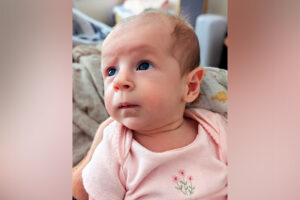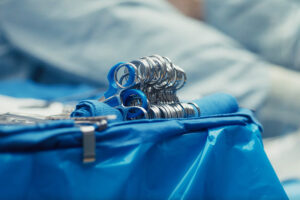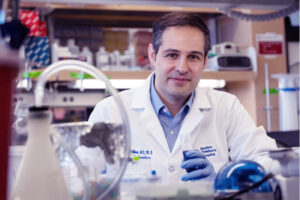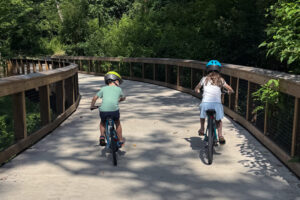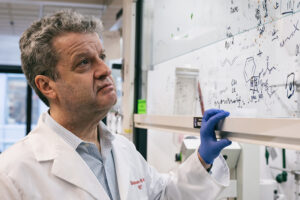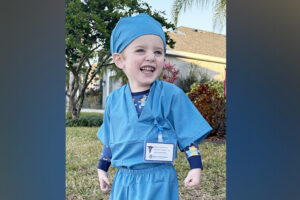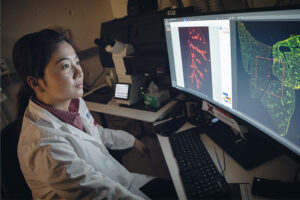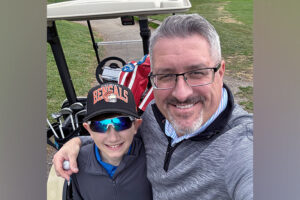A case for Kennedy — and for rapid genomic testing in every NICU
Kennedy was born in August 2025 after what her parents, John and Diana, describe as an uneventful pregnancy. Soon after delivery, though, she struggled to breathe and feed. What followed was a series of hospital stays, a complex diagnosis, and a glimpse into how rapid genomic testing can deliver answers that guide critical decisions and ... Read More about A case for Kennedy — and for rapid genomic testing in every NICU
The hidden burden of solitude: How social withdrawal influences the adolescent brain
Adolescence is a period of social reorientation: a shift from a world centered on parents and family to one shaped by peers, schools, and broader networks. This expansion is critical for healthy development, but it also heightens susceptibility to social stressors. For some, those stressors trigger social withdrawal, a pull toward solitude that may alter ... Read More about The hidden burden of solitude: How social withdrawal influences the adolescent brain
Treating MAPCAs with unifocalization surgery and cardiology care
Children born with a rare form of tetralogy of Fallot (ToF) face a challenging type of congenital heart disease. Known as ToF with pulmonary atresia and major aortopulmonary collateral arteries (MAPCAs), the condition often requires a child to have many operations and cardiology procedures to restore blood flow to the lungs and protect their heart from damage. But a team ... Read More about Treating MAPCAs with unifocalization surgery and cardiology care
The journey to a treatment for hereditary spastic paraplegia
In 2016, Darius Ebrahimi-Fakhari, MD, PhD, then a neurology fellow at Boston Children’s Hospital, met two little girls with spasticity and decreased muscle tone in their legs, which affected their walking. Both girls, Robbie Edwards and Molly Duffy, had been diagnosed with hereditary spastic paraplegia (HSP), which comprises a group of more than 80 genetic ... Read More about The journey to a treatment for hereditary spastic paraplegia
A toast to BRD4: How acidity changes the immune response
It started with wine. Or more precisely, a conversation about it. “My colleagues and I were talking about how some people think drinking wine may be anti-inflammatory,” recalls Xu Zhou, PhD, from the Division of Gastroenterology, Hepatology, and Nutrition at Boston Children’s Hospital. “There’s no scientific ground for that, but we know wine is acidic.” ... Read More about A toast to BRD4: How acidity changes the immune response
The right decision at the right time: Choosing pediatric thyroidectomy
In some ways, siblings Adelaide and Declan couldn’t be more different. Nine-year-old Adelaide is creative, artistic, and nurturing. Declan, 7, is “our little athlete,” says his father, Todd. “Soccer, baseball — he’s always all in.” But the two also have something big in common: they share a rare genetic condition called multiple endocrine neoplasia, type 2. ... Read More about The right decision at the right time: Choosing pediatric thyroidectomy
A safe, pain-specific anesthetic shows preclinical promise
All current local anesthetics block sensory signals — pain — but they also interrupt motor signals, which can be problematic. For example, too much epidural anesthesia can prevent mothers in labor from being able to push. Prolonged local anesthesia after orthopedic surgery can leave patients unable to participate in rehab. Researchers at Boston Children’s Hospital ... Read More about A safe, pain-specific anesthetic shows preclinical promise
After surgeries to treat HLHS, Carter is healthy and happy at home in Florida
Carter Miller loves action. The 4-year-old Florida resident enjoys riding on golf carts and flying high on swing sets. It’s the kind of fun that make his parents, Andrea and Bo, appreciate where the family is now. Nearly five years ago, they were worried after a prenatal diagnosis showed Carter would be born with a ... Read More about After surgeries to treat HLHS, Carter is healthy and happy at home in Florida
A unique marker for pericytes could help forge a new path for pulmonary hypertension care
Pulmonary arterial hypertension (PAH) is a rare condition that’s difficult to treat. The hallmarks of the disease — narrowing of the arterioles and capillaries that deliver blood to the lungs — force the heart to work harder. In severe cases, PAH can lead to heart failure. Pericytes support capillary function and may play a role ... Read More about A unique marker for pericytes could help forge a new path for pulmonary hypertension care
‘We never stopped believing’: Benny’s journey with liver cancer
Earlier this year, 12-year-old Benny helped his dad, Ben, build a deck around his family’s pool. Moving boards, handing each other tools — DIY projects are a rite of passage for many kids and their parents. But the experience was even more meaningful for Benny and Ben. “I got to enjoy that kind of father-son moment ... Read More about ‘We never stopped believing’: Benny’s journey with liver cancer


